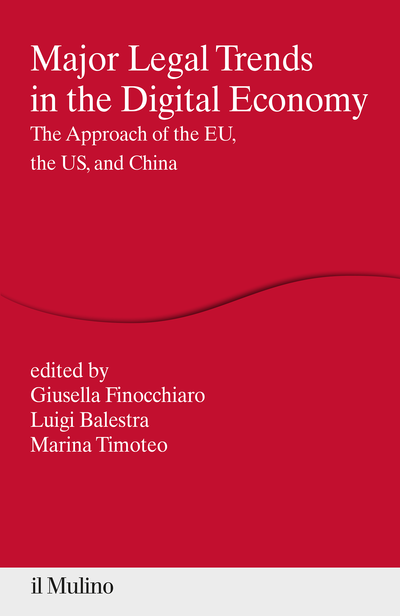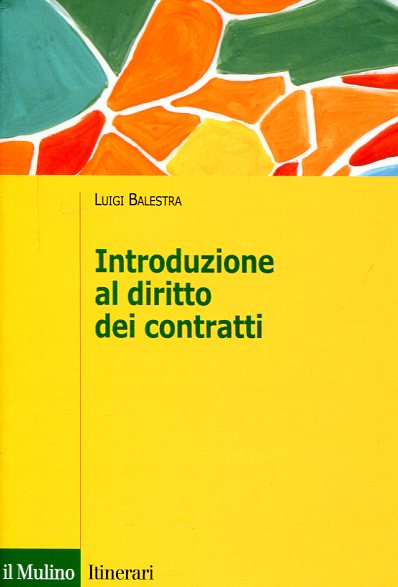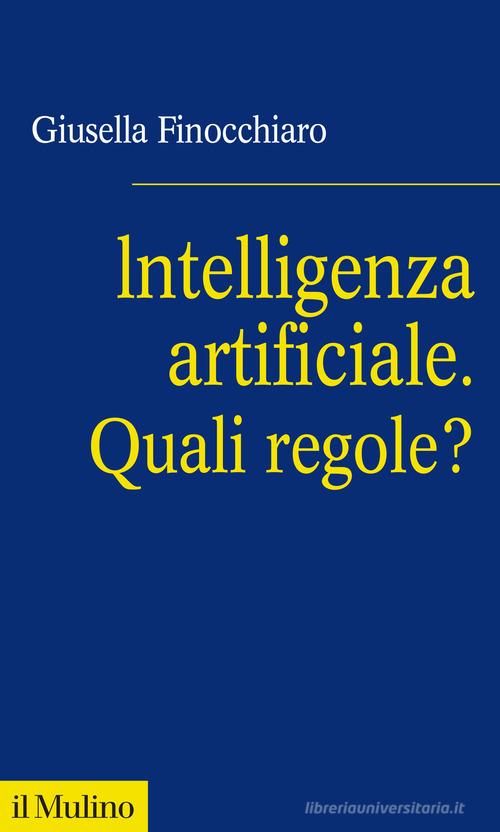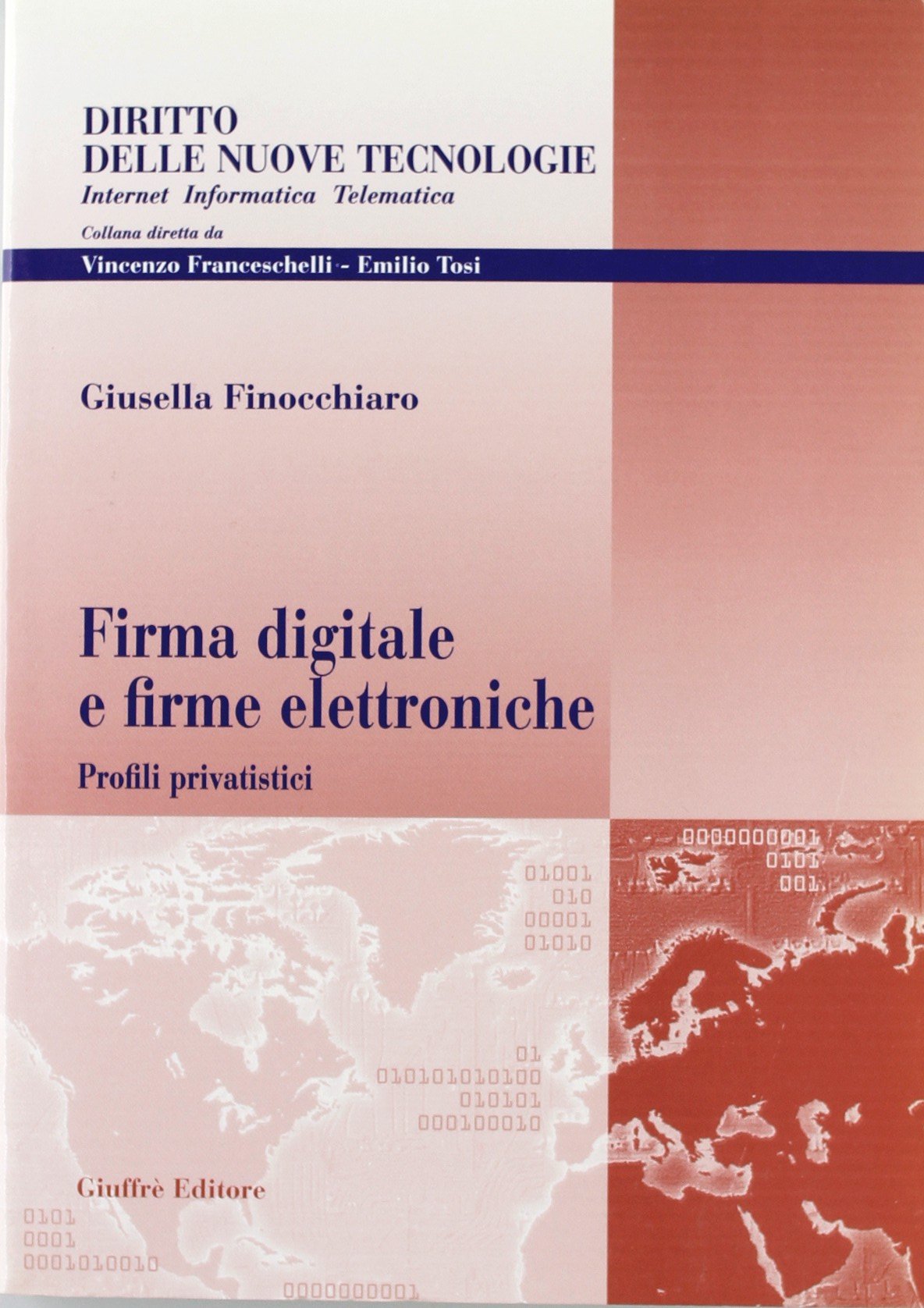Major Legal Trends in the Digital Economy
The Approach of the EU, the US, and China
- ISBN: 9788815294067
- Editorial: Società Editrice Il Mulino
- Fecha de la edición: 2022
- Lugar de la edición: Bologna. Italia
- Encuadernación: Rústica
- Medidas: 24 cm
- Nº Pág.: 296
- Idiomas: Inglés

The book intends to observe and analyze the major trends in the digital economy at the international level, with particular attention to the rules applicable between Europe, the United States and China. After an initial overview of the current technological and geopolitical scenario, the first part of the volume deals with the matter of Governance of the Internet: in particular, it discusses the role played by law in the context of international e-commerce and which level of legislation (national or supranational) is best suited to regulate the commercial relationships arising from it. The first part of the book concludes with the identification of some regulatory and political objectives that it would be desirable for the rules on e-commerce to address, suggesting policies, especially on a cross-border level. The core part of the book makes an accurate comparison between the European, US and Chinese regulatory frameworks on e-commerce, electronic signatures, privacy and intellectual property, with particular attention to the recent Chinese discipline on e-commerce. The last part of the book is aimed at analyzing how the new challenges posed by the most recent developments in the field of information and technology are addressed in the international legal landscape, with specific reference to the problems (and opportunities) arising from the issues of digital identity, smart contracts, artificial intelligence and blockchain structures.
PART I. GOVERNANCE ON THE INTERNET
I. Brief methodological reflections, by Giusella Finocchiaro
II. Discussion of the technological and geopolitical context and the most serious causes for concern, by Stefano Quintarelli
PART II. E-COMMERCE AND E-SIGNATURES
III. An introduction to the importance of a comparative approach in the analysis of the benefits and the risks of e-commerce, by Luigi Balestra
IV. The international regulatory framework for e-commerce; the approach of the US, China and the EU, by Federico Antonelli
V. An overview of the recent Chinese e-commerce law and the impact of EU-China cooperation on digital trade, by Federico Antonelli
VI. The common core in European and Canadian electronic commerce law provisions (with some references to Chinese and US legal frameworks on the matter), by Francesco Delfini
VII. E-commerce and protection of consumers underwriting online contracts: A comparative view on the evolution of EU law and Chinese law, by Giovanni De Cristofaro
VIII. Online trading platform providers’ liability for damage to consumers and its systemic construction, by Lebing Wang
PART III. PRIVACY AND INTELLECTUAL PROPERTY
IX. E-commerce and law: A post-modern legal scenario. Ideas from the Chinese observatory, by Marina Timoteo
X. Privacy and ownership rights: The legal framework governing the protection of personal data and the promotion of economic and intellectual competition in Italy and Europe, by Franco Pizzetti
XI. The protection of trade secrets in the European Union and China: A comparative analysis, by Cesare Galli and Filippo Calda
XII. E-commerce and IP protection in China, by Gong Hongbing
PART IV. CURRENT CHALLENGES: DIGITAL IDENTITY, SMART CONTRACTS, ARTIFICIAL INTELLIGENCE AND BLOCKCHAIN
XIII. Enabling e-commerce and safeguarding citizens’ fundamental rights: eIDAS squares the equation, by Konstantinos Kapsouropoulos
XIV. UNCITRAL’s response to current challenges posed by the new technologies and the pandemic, by Luca Castellani
XV. UNIDROIT’s project on digital assets and private law: Towards a legal taxonomy and a set of principles, by Ignacio Tirado and Carlo Di Nicola
XVI. The regulatory framework for current technological challenges: Some methodological considerations, by Dianora Poletti
XVII. The legal framework for digital identity, by Thomas J. Smedinghoff
XVIII. On smart contracts, from the perspective of the private law system, by Zhao Lei and Sun Qi
Contributors











